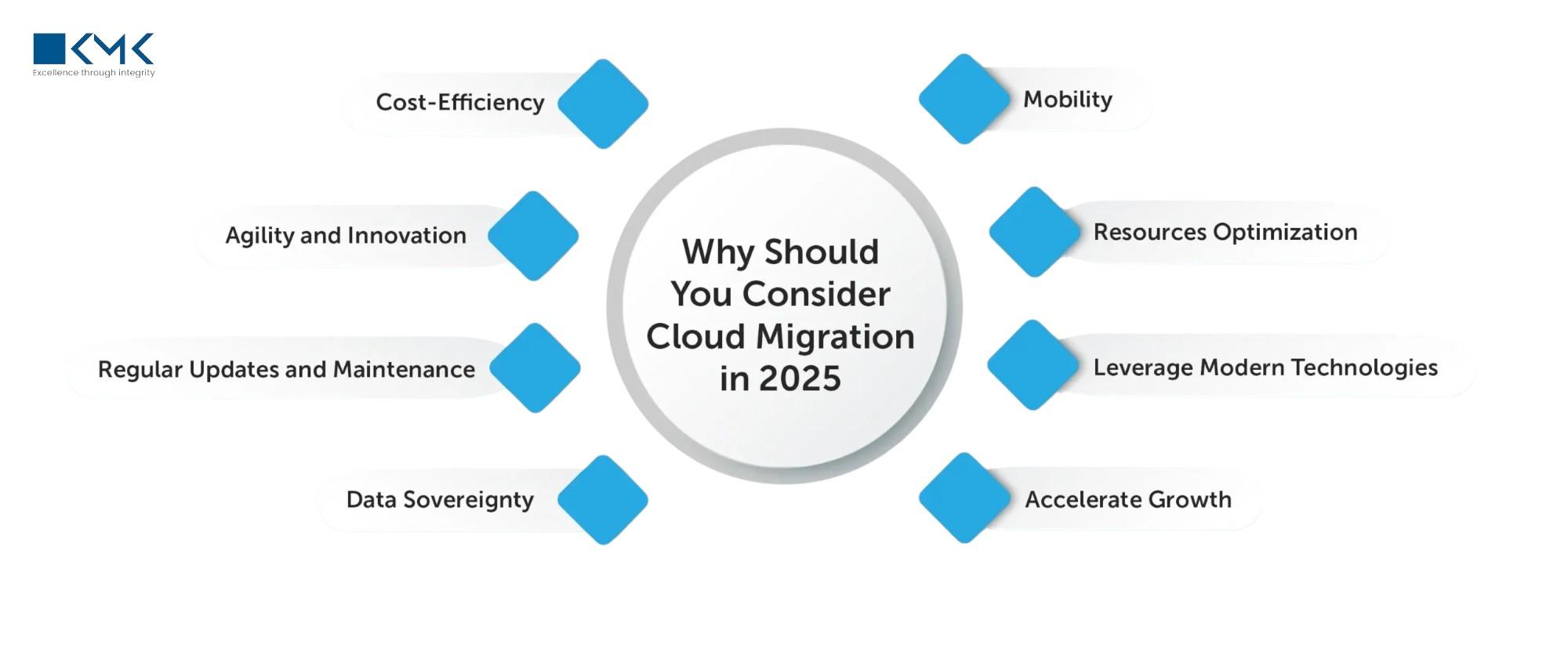Why Migrating to Cloud Accounting is Crucial for US Businesses in 2025

In today’s fast-paced business world, technology is more than just a support system—it’s the backbone of growth and efficiency. One of the biggest shifts in recent years has been the move from traditional accounting systems to cloud-based platforms. For US businesses, migrating to cloud accounting in 2025 is no longer optional—it’s essential for staying competitive, compliant, and future-ready.
But what exactly makes this migration so crucial, and why now? Let’s dive deeper.
What is Cloud Accounting?
Cloud accounting refers to managing financial records and processes using software hosted on the cloud rather than installed on local computers. This allows businesses to access real-time financial data anytime, anywhere.
Unlike traditional accounting systems, cloud solutions:
-
Provide automatic updates
-
Store data securely on remote servers
-
Enable seamless collaboration across teams
-
Offer scalability as businesses grow
For US businesses navigating regulatory requirements, global competition, and remote work trends, cloud accounting offers a flexible and modern approach.
Why the Shift is Happening in 2025
So why is 2025 a pivotal year for US companies to embrace cloud accounting? Several factors are driving the shift:
1. Increased Focus on Digital Transformation
Businesses across industries are adopting digital-first strategies. Accounting, being a core business function, is now part of this wave. Companies that delay moving to the cloud risk being left behind.
2. Regulatory Pressures
With evolving tax laws and stricter reporting standards in the US, cloud platforms simplify compliance by offering automated updates and built-in regulatory checks.
3. Remote and Hybrid Work Models
The workforce is no longer tied to office desks. Cloud accounting enables finance teams to access records securely, collaborate remotely, and ensure business continuity in any situation.
4. Competitive Advantage
Faster financial insights mean quicker, smarter decisions. Companies using cloud systems can analyze data in real time, giving them a competitive edge over those stuck with outdated processes.
Key Benefits of Migrating to Cloud Accounting
1. Real-Time Access to Financial Data
With cloud systems, US businesses no longer need to wait until month-end reports to get clarity. Leaders can track cash flow, expenses, and revenues in real time, enabling proactive decision-making.
2. Enhanced Security
Cloud providers use advanced encryption, multi-factor authentication, and regular backups to secure financial data. For businesses concerned about cyber threats, cloud systems often offer stronger protection than on-premise solutions.
3. Cost Savings
By eliminating the need for heavy IT infrastructure and manual processes, cloud accounting reduces operating costs. Businesses pay for what they use, making it highly cost-effective.
4. Seamless Integrations
Modern cloud accounting platforms integrate with payroll, CRM, ERP, and payment solutions, creating a single source of truth for business operations.
5. Scalability and Flexibility
As businesses grow, cloud accounting can scale up without requiring major system overhauls. Whether expanding domestically or globally, the system adapts to new demands.
How Cloud Accounting Transforms Financial Management
When businesses migrate to the cloud, financial management becomes smarter and faster. Some examples include:
-
Automated Invoicing: Reduces delays and improves cash flow.
-
AI-Driven Insights: Predicts trends, helping businesses plan better.
-
Collaborative Workflows: Finance teams, accountants, and executives can access the same data simultaneously.
-
Mobile Access: Decision-makers can view reports on the go.
This transformation isn’t just about convenience—it’s about empowering businesses to make timely, informed decisions.
Common Concerns About Migrating to Cloud Accounting
While the benefits are clear, many US businesses still hesitate. Common concerns include:
-
Data Security: “Will my financial data be safe in the cloud?”
-
Implementation Costs: “Is it too expensive to switch?”
-
Training Needs: “Will my team adapt easily?”
The reality is that most reputable cloud providers prioritize security at levels far beyond what an individual company could achieve in-house. Additionally, implementation costs are offset by long-term savings, and most platforms are designed with user-friendly interfaces to shorten the learning curve.
Steps for a Smooth Migration
If your business is considering migrating to cloud accounting in 2025, here’s a roadmap:
-
Assess Current Systems – Identify gaps in your existing accounting processes.
-
Choose the Right Platform – Evaluate providers based on scalability, integrations, and compliance features.
-
Plan the Migration – Set a timeline, allocate resources, and ensure data backup.
-
Train Your Team – Provide adequate training to finance staff and other stakeholders.
-
Test Before Full Rollout – Start with a pilot phase to address potential issues.
-
Go Live with Support – Ensure vendor support during and after implementation.
The Future of Cloud Accounting for US Businesses
Looking ahead, cloud accounting will continue to evolve with emerging technologies:
-
Artificial Intelligence (AI) will enhance predictive analytics.
-
Blockchain may redefine transaction verification and audit trails.
-
Advanced Integrations will bring even more tools into one centralized hub.
For US businesses, staying ahead means adopting these technologies early. Migrating to cloud accounting in 2025 is not just a short-term upgrade but a long-term investment in efficiency, transparency, and competitiveness.
Final Thoughts
In 2025, the question is no longer “Should we move to the cloud?” but “How quickly can we make the transition?” For US businesses, cloud accounting delivers agility, cost savings, and stronger decision-making capabilities—all while ensuring compliance in a rapidly evolving financial environment.
By embracing cloud technology, businesses can unlock new opportunities for growth and resilience. Those who resist risk falling behind competitors who are already leveraging real-time insights and automation.
- Art
- Causes
- Crafts
- Dance
- Drinks
- Film
- Fitness
- Food
- الألعاب
- Gardening
- Health
- الرئيسية
- Literature
- Music
- Networking
- أخرى
- Party
- Religion
- Shopping
- Sports
- Theater
- Wellness


